Principal #20: “We allow no separation to grow up between the intellectual and ‘spiritual’ life of children, but teach them that the divine spirit has constant access to their spirits, and is their continual helper in all the interests, duties, and joys of life.”
And now we come full circle, because with this final principle we are reminded that children are born persons and persons bear the divine image that has access to the Holy Spirit Himself to teach us about God and His world. Mason reminds us, “‘I want, and made for, and must have a God.’ we have within us an infinite capacity for love, loyalty, and service; but we are deterred, checked on every hand, by limitations in the objects of our love and service… where, but in our God, the maker of heaven and earth, shall we find the key to all knowledge? Where, but in him, whose is the power, the secret of Dominion? And our search and demand for goodness and beauty-- baffled here, disappointed there– it is only in our God we find the whole. The soul is for God and God is for the soul as light is for the eye and the eye is for light.” (Ourselves, Book 2,176)
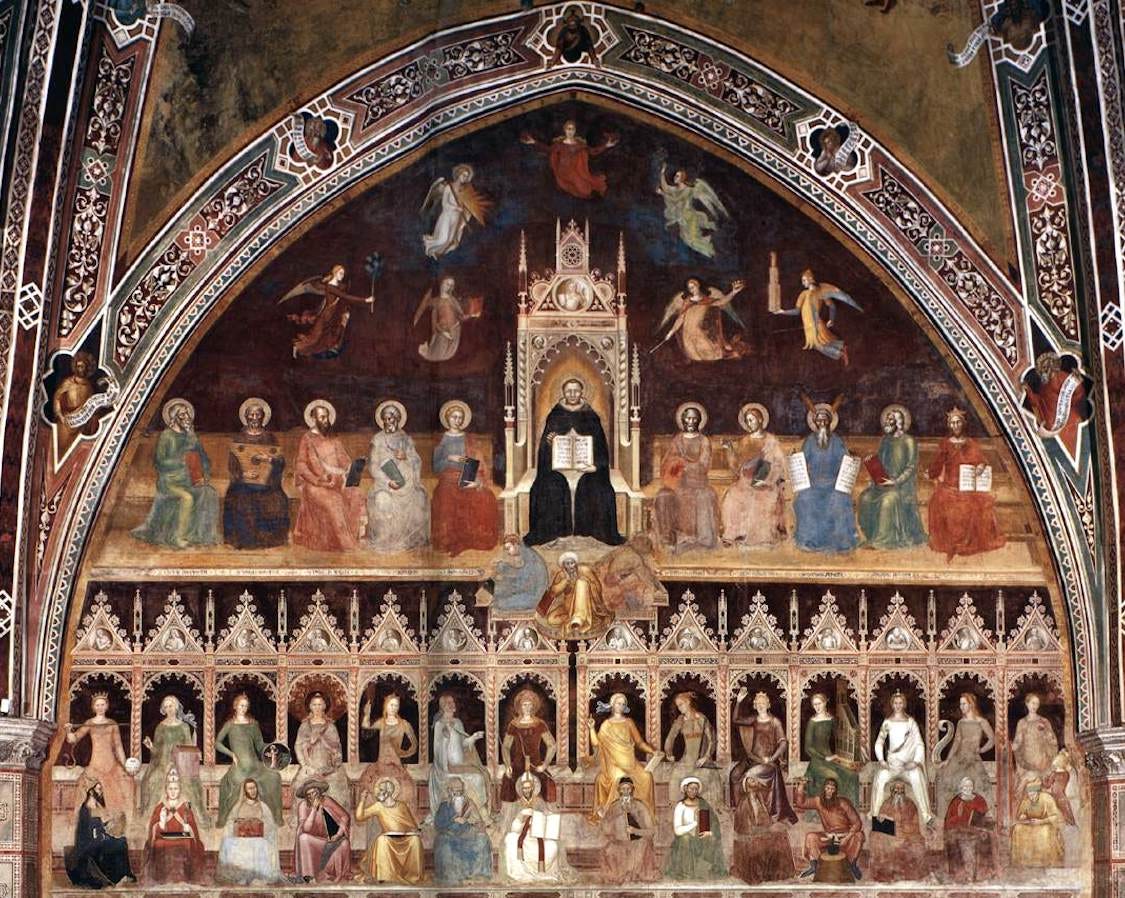
(To learn more about the painting and its significance to Mason, go here.)
Children and the Divine Image, once again
Throughout this last principle we have echoes of the first: Children are born persons. We also have the thread that runs through all the principles: Education is about relationships (relationships with one another, ideas, creation, and God Himself). Here we are brought to face the reality that God is the author of all the human disciplines that make up a child’s education. He invented Math, He created all nature, He set the planets in motion, He designed and thought of the rules of geometry first. If something is beautiful to behold: as a newborn baby, a graceful horse, a mountain view, these things were in the mind of God first and as we study all of the arts and sciences we are coming into contact with our maker.
As we study the arts- those things made by the ingenuity of man: paintings by Rembrandt or Michelangelo, or watch a midwife care for a mother and a baby, or listen to a skilled orator weave an inspiring tale to help us all rise above our mediocrity and see the hope that is ours because we bear the Image of God Himself, may we remember that God is manifest here too. As we study the sciences- those things which are made by God and are wholly true: the growth habits of trees, the sun in its path across the sky, the phenomenon of gravity, His mind, character, and love for us are revealed. We want our children to love God and His world - Mason might say we want children to come into a relationship with all that God made and to be able to use all of their facilities as image bearers to be able to speak, draw, write, paint, compute, discover, question, explore, engage with life as our interests, duties, and joy require. But to study these things is not an end in itself. These help to cultivate the character and soul of the Christian child to be satisfied in and pursue God.
There are many aspects of how the Holy Spirit works in education. We will look at three, which will give us some practical applications for this mysterious aspect of our children’s education:
The Holy Spirit helps a child grow in virtue
The Holy Spirit works through prayer
The Holy Spirit works through us
The Holy Spirit Helps a Child Grow in Virtue or Education is Character Formation
The content taught in a school or homeschool is only one piece of the educational puzzle. This principle reminds parents and teachers that we must not separate the child’s academic pursuits from their moral and religious life. These are one. Our children are hungry for knowledge. They are curious and insatiable to understand the world. They, in fact, have everything to learn.
Mason reminds us that the child “is baffled on all hands by his ignorance… The wings of a man’s soul beat with impatience against the bars of this ignorance… there is no satisfaction for the soul of a man, save one, because of the things about him are finite, measurable, incomplete; and his reach is beyond his grasp; he has an urgent, incessant, irrepressible need of the Infinite. Saint Augustine knew, when he said that the soul of man was made for God and could never be satisfied until it found him.” (Ourselves, Book 2, page 175)
But, to bring it back to unifying thread, education is about helping children come into relationships with a great many things and that means that we want them to love much - in particular we want them to love God’s goodness manifest in the hearts of man which is virtue. This looks like instead of rushing through the booklist with great haste, we plan for time to dig into one great idea, or take the time to express the idea artistically, or explore a place that brings that idea to life-- all this is building up the child as a person to grow in virtue. We are less like drill sergeants stuffing their heads with information and more like friendly guides showing them this beautiful world God made for them to enjoy while teaching them how to engage in it as befits a child of a King (which is virtue training, once again).
When our focus is about helping the child grow in virtue instead of growing in information, how we approach everything changes.
Let me give you an example with copywork.
When I first learned about copywork, I saw it as a lovely assignment. I looked for preprinted copybooks so that I didn’t have to manage my children’s selections each day. After all, having a book of copywork set up and ready to go is much more efficient. But children are not efficient, they are relational.
But, as my older children came into middle school, I wanted them to begin using a commonplace book to record favorite passages from their readings they were doing without me. Then it dawned on me. The process of a child selecting his passage for copywork from his reading is helping to teach him how to make choices of what is most important from the reading. It also helps me to see what passage resonates with my child - what does he find funny or concerning? These are all helpful in forming a relationship with our reading. I realized that how my child was writing out his passages was important to the formation of his character - not as an assignment alone, but in how he sees his duty to work for me as his teacher and the God who made him. Copywork became more about pursuing virtue- connecting with ideas, doing our best work, and having a good attitude and less about an item on a to-do list that someone else imposed upon our homeschool.
This is where the Holy Spirit is able to work. Instead of treating my child as an automaton churning out copybook pages, I can bring my child into a relationship with great ideas which gives room for him to hear the Holy Spirit working, see his own capacity grow, and develop his skills, which are all gifts from above. Machines don’t need the Holy Spirit but persons do. When we approach our child’s work by honoring their dignity, we all reap the benefits.
Sometimes the work gets hard to do, and the inspiration for the “best” passage isn’t there we can go to the Lord in prayer and ask for help because the work is worthy of their time and efforts and therefore worthy of their petitions to heaven for divine help.
The Holy Spirit works through prayer
At the beginning of this past school year, we added a new student to the mix - my six-year-old joined her older sister for Form 1. To review, I then had six students homeschooling plus a three-year-old at large. I didn’t realize that jumping from five to six students would throw me for such a loop, but it was a difficult transition. The school year began just after I spent some time potty training my toddler. When school was off to the races, he was still not fully independent. I was too exhausted to try another approach, and my other kids needed me to support them. I lamented to a friend in the church parking lot about how baffled I was about the situation. Being a good friend, she agreed that I was in a pickle. So, we prayed. We prayed that the Lord would give my son the courage or ability to take this part of his life on for himself.
You guys, he had one accident after that prayer and many small petitions after that and VOILA! He was managing things for himself! Yes, I had him sit in timeout after he made a mess that one time, but he didn’t do it again. God works and we work, and He works in us and through us. So, when all is lost: pray.
The Holy Spirit works through us
The best way for you to understand how you, as the mother, can work in concert with the Holy Spirit whilst also teaching, guiding, and directing your child to learn (everything!) I will share a story. Keep in mind the work of all three players: Mother, Child, and Holy Spirit. None are passive in this story, and none ought to be passive in our homeschools either.
A little boy named Elliot began taking piano lessons from his mother at home. She wanted him to learn the piano. She also wanted him to love the piano, so she bought tickets for him to see a Great Pianist perform when the tour came to their town. The day came for the concert. They arrived early and found their seats. The mother saw an old friend and started chatting away as they waited for the concert to begin. As they chatted, a hush fell over the theater. Elliot was up on the stage and was sitting down to play the piano! The boy didn’t feel the tension in the air but sat down and started playing- just as his mother taught him- “Twinkle, Twinkle Little Star.”
As he played, the Great Pianist himself came out onto the stage. He whispered to the boy, “Keep playing.” Then he added the bass with his left hand as the boy continued to play the melody. Adding to the arrangement, he reached around the boy and played with his right hand. The music danced through the air while boy and Master played the best version of Twinkle, Twinkle Little Star they’d ever heard.
The mother and boy, we can all relate to. We, as mothers, try to lead our children to love things that are worthy of their affections. But we don’t know what will stick and what the Lord is doing in the hearts and minds of our children. The Great Pianist was not the Holy Spirit per se, but I think it is a picture of how the Holy Spirit works in the education of our children. They bring their Twinkle, Twinkle, Little Star, and He brings the bass and adds to our melody. He makes our efforts bear fruit. It is the work of the Holy Spirit who brings an answer to a learning disability, or a nutritional change that needs to be made, it is the work of the Holy Spirit who directs a child to love piano or love Math. Our children are not machines, they are persons made in God’s Image who, as we hope to discover, will Image God in the way He has designed for them.
We can trust God in them to teach, encourage, and act to His good purposes. We work. Our children work. And God works. We are faithful to do our duty, and we make sure that our children do not separate their academic lives from their spiritual lives. God always has access to their spirits to help them, to teach them and to inspire them to learn to love His goodness which is the pursuit of virtue.
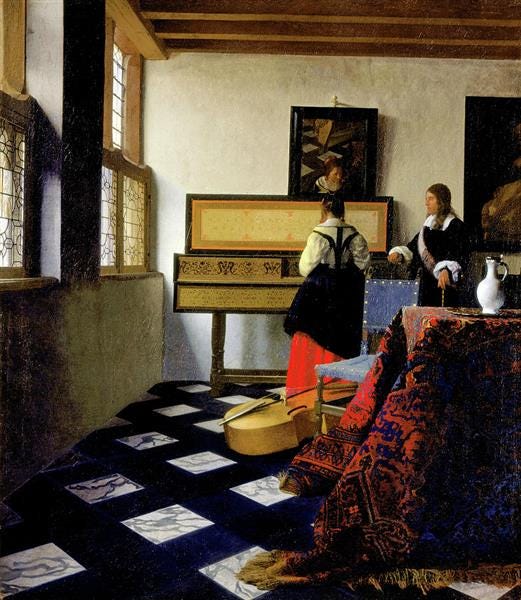
As Image Bearers our children do not need their heads stuffed with books and information. They need to come into relationship with great ideas and use those relationships to learn how to live well and to be built up with a strong character (which is virtue) as befits a child of God. They need our prayer and need to learn how to pray to invite the Holy Spirit to act and to teach them when mom is not enough and the things of this world are too hard. Nothing is too hard for God. They can learn early and often that “when I am weak, then I am strong.” And their strength does not come from inside of themselves, it comes from the God who made them. He will equip them for every good work. And finally, we can trust that God will act on their behalf. He is all knowing and all powerful and is the maker of all things. There is no math problem that can stump Him, no relationship that perplexes Him. He can be trusted and will work to bring about His good and perfect will even in a Math lesson or a Science experiment. He is Lord over all, may we bring our children before His throne and invite Him into all aspects of our lives.
**If you want to be effective with your Nature Study work, join the Screen Free Kids Get Outside Challenge. Head over to HoweverImperfectly.com/ScreenFreeChallenge to download your free packet!**
Reflection Questions:
What parts of the day to I remember to acknowledge the role of the Holy Spirit’s power to teach my children? When do I forget?
What does it look like for me to prioritize virtue formation over information in my homeschool?
Think about how you currently choose books, assignments, or schedules. Is there room to slow down and make space connect with ideas in different ways. (Ideas could be: using movement, experiences, notebook work, long-term projects, research, teaching someone else etc.)Have I made room for my children to make choices about ways to engage with ideas they encounter in their school lessons?
In what ways can you hand over more responsibility to your child—like choosing copywork passages or narrating orally—so they can engage more personally and meaningfully?Where do I need to pause and pray instead of pushing through?
Think about a recent frustration or stuck point in your homeschool. What would it look like to stop, bring it before the Lord, and ask Him to help?Do I trust that the Holy Spirit is working in my child’s heart—even when I don’t see results right away?
Reflect on the piano story: how might your child’s “Twinkle, Twinkle” be exactly the offering God wants to use and build upon a challenge he/she faces today?
20 Principles of a Liberating Education:
#2 The Good and Evil Nature of Children
#3 Parents are in Charge and Children Must Obey
#4 Limits to Our Authority as Parents and Educators
#5 Education is an Atmosphere, a Discipline, a Life| a primer
#9 Feeding the Hungry Mind
#10 From Bucket Heads to Bright Minds| The True Role of Teacher & Learner
#11 Drop the Timeline Song| Education is Cultivating Wisdom Through Nourishing Ideas
#13 The Curriculum i.e. The Living Library
#16a and 17 The Way of the Will
#16b and #18 The Way of Reason
#20 All Knowledge Comes From God (You are here)
Bibliography for further reading
Books that will help you grasp the 20th principles more deeply:
Norms and Nobility by David Hicks
Beauty in the Word by Stratford Caldecott
Poetic Knowledge by James Taylor
The Four Cardinal Virtues by Josef Pieper
Books about Charlotte Mason’s Philosophy:
Know and Tell by Karen Glass
Start Here, a Journey through Mason’s 20 Principles by Brandy Vencel
Philosophy of Education by Charlotte Mason
Home Education by Charlotte Mason






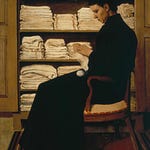
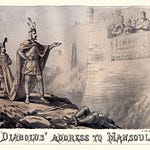
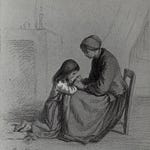
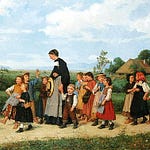
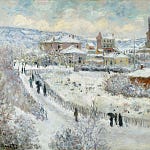
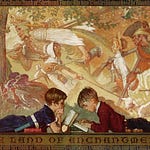
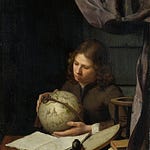
Share this post